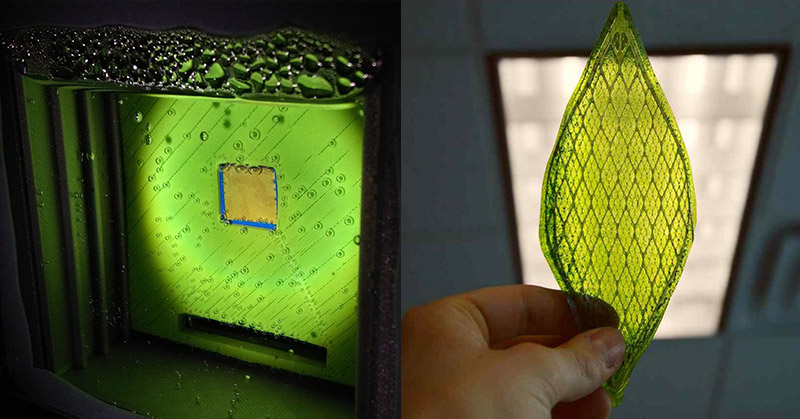Carbon dioxide (CO2), as many know, is one of the primary gases contributing to the global warming crises [1]. CO2 is a greenhouse gas that absorbs heat and releases it slowly over time. Naturally, the greenhouse effect is necessary because, without it, the temperature of the earth would probably be far below the freezing point. However, an excess of these gases in the atmosphere has tipped the earth’s natural temperature balance, causing what is now known as global warming, a massive threat to the future of humanity and the planet.
For the war against climate change, a group of scientists invented an “artificial leaf” that absorbs CO2 out of the environment and converts into methanol, a clean-burning fuel [2]. Green plants are natural sources of oxygen to the earth through the process of photosynthesis. They absorb carbon dioxide to produce glucose, oxygen, and water.
“I tried to find a new way to mimic photosynthesis in nature, where leaves convert carbon dioxide and water with sunlight to produce glucose and oxygen,” said lead researcher Yimin Wu, a professor of engineering at the University of Waterloo, to Independent [3]. “The motivation is to reduce carbon dioxide emissions, a greenhouse gas, and hopefully reduce global warming and to provide sustainable energy.”
This natural process inspired an innovative technology to absorb CO2, break it down into methanol and release oxygen. According to the scientists, approximately 72% of the CO2 is converted into methanol, the simplest known alcohol.
The process
The artificial leaf mimics the process of photosynthesis with the help of a photocatalyst called cuprous oxide or copper (I) oxide. In nature, the photocatalyst is chlorophyll, a naturally occurring pigment that traps energy from the sun to trigger the process. Copper (I) oxide is a reddish or brownish powder that is abundant in nature.
The leaf and cuprous oxide are heated in water to allow the evaporation of methanol so it can be collected as fuel at the end of the process. When the temperature of the water is increased to a certain point, carbon dioxide is passed through it and white light is directed over the solution. Glucose, copper acetate, sodium hydroxide, and sodium dodecyl sulfate are also added to water to create a more efficient and usable fuel.
In due time
Speaking to the Independent, Professor says that the technology is still being developed and will take many years before it is commercialized. However, they plan to release it in various scales to suit both domestic and industrial needs.
“This technology has achieved the solar to fuel efficiency about 10 percent. This is already larger than the natural photosynthesis (about one percent). The next step is to partner with industry companies to scale it up with a system engineering of flow cell for the production of liquid fuels. More efficient artificial leaves can be developed along the lines with industry partners,” he said.
Professor Wu and his team have been working on the project since 2015 and they finally had a breakthrough this year. There’s still a lot of work to be done but the team is enthusiastic about the future of their invention.
“I’m extremely excited about the potential of this discovery to change the game,” said Wu. “Climate change is an urgent problem and we can help reduce carbon dioxide emissions while also creating an alternative fuel.”
Let’s hope this invention will hit the consumer markets soon. It could be a massive revolution in the fight against climate change.
Sources
- Admin. The Causes of Climate Change. NASA. https://climate.nasa.gov/causes/. Retrieved 16-11-19
- Wu et al. Facet-dependent active sites of a single Cu2O particle photocatalyst for CO2 reduction to methanol. Nature Energy. https://www.nature.com/articles/s41560-019-0490-3. Retrieved 16-11-19
- Phoebe Weston. Scientists create ‘artificial leaf’ that sucks in carbon dioxide and makes fuel. Independent. https://www.independent.co.uk/news/science/artificial-leaf-carbon-dioxide-fuel-photosynthesis-climate-change-a9184031.html. Retrieved 16-11-19

